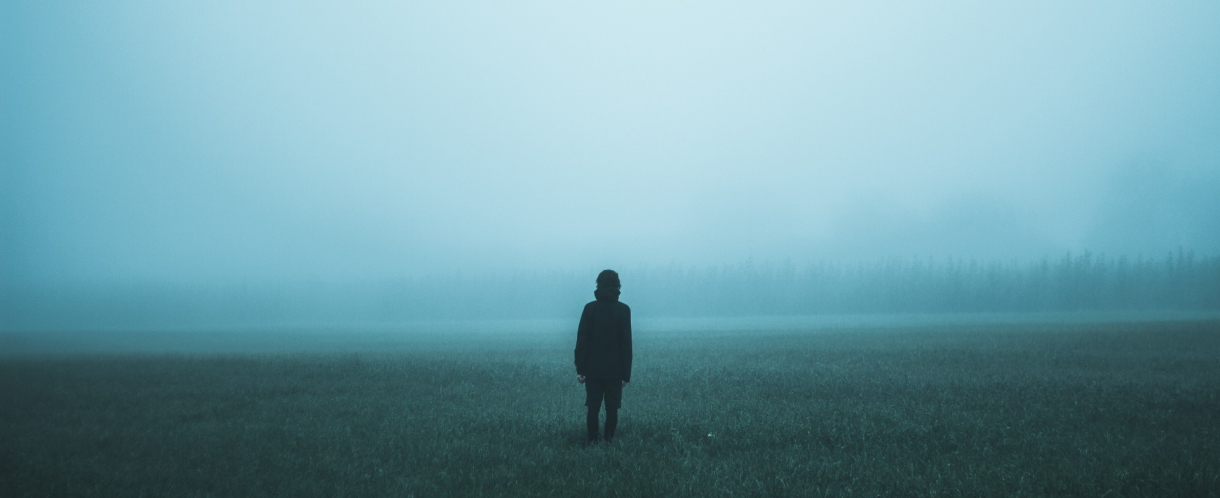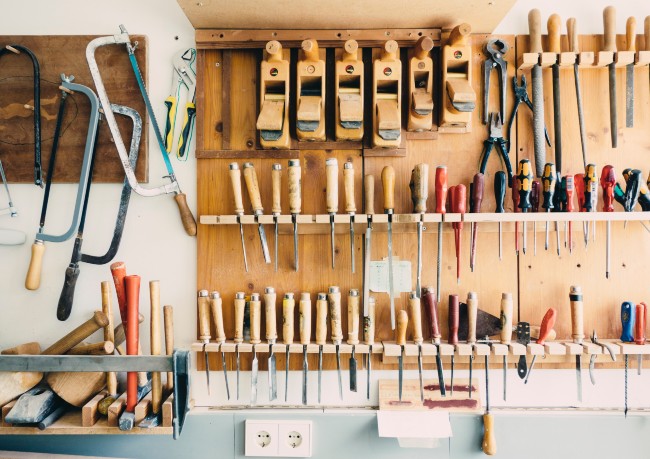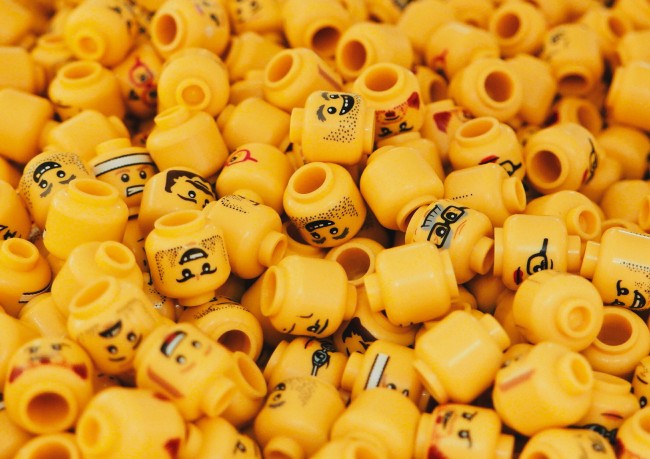
Feeling groundless and apprehensive? Stuck in survival mode, unable to take action? Natasha shares 6 ways to reduce your panic and take back control in uncertain times.
“Letting there be room for not knowing is the most important thing of all. When there's a big disappointment, we don't know if that's the end of the story. It may just be the beginning of a great adventure. Life is like that. We don't know anything. We call something bad; we call it good. But really we just don't know.”
– Pema Chodron
Tell me all the things you don’t know.
All the uncertainties, all the mysteries, all the yet-to-be-discovereds.
The fears and the what-ifs, the maybes and the doubts.
The things you don’t know about yourself. About the world. About how the two fit together.
What’s going to happen next? Where does the story go from here? How much say do you truly have in any of it?
What does it feel like to not-know all of that? Where does it send you?
When you take away everything you don’t know, what’s left?
I write about career change.
I write about finding fulfilling work, about contributing something to the world that lights you up, about finding ways to get paid for it.
But underneath all of that, what I really write about is uncertainty.
Career change is all about navigating uncertainty – every last bit of it.
What kind of work would fulfil you? Do you have anything to offer?
Who will take you seriously? Will you make any money?
Is now the right time? Will it ever be? Is it all a futile pipe dream?
What kind of person throws away a whole career to chase after something else?
You, more than likely, don’t know any of that, right now.
So what do you do?
You could start with these things:
1. Come back here

“If you want to make God laugh, tell her your plans.”
– Ann Lammott
Most of the pain of uncertainty is not in the uncertainty itself.
Life is a constant state of uncertainty – when we think closely about the future, we know that we never truly know how things are going to unfold.
We get up in the morning and we have no idea if the train will run on time.
We don’t know who will stand beside us in line at the coffee shop.
We can take a good guess at what we’ll do at work that day, but as often as not, something will come up that we never would have predicted.
The difficulty of uncertainty is the fear that something in that inevitable, unavoidable future will hurt us.
We imagine monsters and disasters, dream up worst-case scenarios and catastrophic what-ifs, and then we climb inside them and tremble in terror.
But those werewolves and apocalypses don’t exist. They may never exist.
Until they have arrived, they’re nothing more than expressions of our incredible imaginations.
And yet we live as though they’re imminent, if not already upon us.
We are artists of disaster, and the craftsmen of our own terror.
Look around the room you’re in right now.
In all likelihood, there’s not a hobgoblin to be seen.
You can probably come out of the cupboard for a while.
A wise man once told me never to look more than three steps ahead.
He was smart. Do what he said.
Be where you are.
Something to try:
- Look around the room you’re in and try to find the disaster you’re most afraid of.
- Not your fear of the disaster, the disaster itself.
- If you can find it, sit with it. Take a good look. Almost everything, even death, is surprisingly benign when it arrives.
- If you can’t see it, let it go.
2. Tool up

“In chaos, there is fertility.”
― Anais Nin
We’re all control freaks at heart.
Constantly scrambling to arrange our environments, our lives, other people’s lives, to accommodate our needs and feelings from moment to moment.
Even the most laid-back among us, our most go-with-the-flow friends, are arranging their minds carefully to avoid the sensation of disappointment and groundlessness.
So it’s scary to think that there’s something coming in the future that might hurt us, and it’s just as scary because it feels like there’s nothing we can do about it.
It feels like we’re out of control.
It’s the recognition of our smallness, our insignificance, in the huge expanse of life and the universe.
In response to that realisation we scramble ever-harder to regain a sense of authority – grab on tighter to the things that we know, plan for every eventuality, wish – and wish, and wish – we could know more, do more, have more, see more.
We rail against the gap between what we have within our reach, and what we imagine would represent our rightful power over our own existence.
But that power was never ours to begin with.
What is ours, in this moment, is the field of vision, and the tools that we have immediately available to us.
(And on top of those, we have the awesome imagination that we’ve been using to torture ourselves thus far! We already know the power it wields – imagine what it could create if it were used for any other purpose...)
We consistently underestimate what we already have.
In our minds it is never as good, or as special, or as useful, as the things and the skills and the experiences and the people in the Land of Over There.
I won’t spell out the irony of that mismeasurement (I have no doubt you can see it for yourself).
But I will point out that every moment you spend sneering at the tools in your hand, wishing you had more-better-different, is another moment spent in a place you don’t want to be.
Something to try:
- Take a moment to remove yourself from the picture of your life.
- Replace yourself with someone else – a fictional, faceless Someone.
- This Someone has everything you have – your knowledge, your experience, your creativity, your skills, your family and friends and connections.
- What could Someone do with what they now have available to them?
- What three actions could they take to make even a little forward progress?
3. Go do that, then

“Don’t be fancy, just help people.”
– Glennon Doyle
A great many of us would say that we’re much better equipped to help other people with their problems than we are to solve our own.
It’s an idea I hear from career changers all the time.
And my response is almost always the same: “Good. Go do that, then.”
The solution to your own problems almost always lies hidden in your responses to others.
And whatever pulls you out of your own navel and into the world is worth doing.
Find ways to help people.
Bring whatever you have to offer.
Help to solve their problems.
Hold their hands.
Ask them questions. Listen to what they’re dealing with. Support them in their dreams, their struggles, their wonderings.
The more you’re focused on other people, the less you can get tangled in your own web of confusion and drama and fear.
The more gifts you share with others, the more you realise... you have gifts to share.
The more you focus on a real question to solve right-here, right-now, the less you disappear into the land of what-if and the made-up monsters that reside there.
Some of you may already have twigged that actually, this is what ‘work’ is.
It’s just helping people.
Do more of it.
Something will happen.
Something to try:
- Quickly sketch out a map of communities that might need some help right now.
- How could you help?
- How could you find out how you could help?
4. Examine the crappy

“The best spiritual instruction is when you wake up in the morning and say, ‘I wonder what’s going to happen today.’ And then carry that kind of curiosity through your life.”
— Pema Chödrön
Benjamin Zander, conductor of the Boston Philharmonic Orchestra, has a rule for his students.
When they make a mistake, instead of shrinking down, making a face, they must throw their hands in the air and yell, “How FASCINATING!”
Playful, friendly, yes.
But it’s more than that.
When we shut down in the face of discomfort, we cut ourselves off from the lessons that are waiting in its wings.
What is there to learn from this situation, from these sensations, from our automatic responses to what has arisen?
Where do you go when something like this occurs? Who do you become?
What else might be possible?
What’s the thing behind the thing that you might pounce upon as a lesson and a blessing, if only you’d stuck around long enough to notice it was there?
Maybe the situation you’re facing is crappy. Really, heart-wrenchingly crappy.
Let it be crappy.
Have a good, long look at the crappy.
What exactly is it? More specific than that – what exactly is it? How did it get here? What happens to it when you do this? And that? Who are you in its presence?
What might it have come to teach you?
Something to try:
- Choose a situation in your career change that is causing you discomfort and uncertainty.
- Without using any words or phrases of judgement, cutting out any ‘story’ you have attached to it, write down everything you know about it. The barest of the facts.
- Then write down everything you feel about it.
- Then write down everything you do to deal with how you feel about it.
- Finally, write down anything you haven’t yet said about it.
- Then, read it back to yourself as though it were a story handed down to you as a message from the heavens.
How FASCINATING.
Right?
5. Act accordingly

“The only way to make sense out of change is to plunge into it, move with it, and join the dance.”
– Alan Watts
If we accept that life is really very little other than a long string of uncertainty, we can rearrange our focus.
Instead of focusing on fighting it, we can expect it.
And if we can expect it, it transforms.
If we can be absolutely certain that the future is uncertain, then what might we do?
If we knew that how we think things are going to unfold is frequently not, in fact, how they unfold, how might we approach our lives?
Our career changes?
Might we, for example, try reaching out to someone who inspires us (because however certain we are that they won’t respond, the one thing we know for sure is that we have no idea what they’ll do)?
Or might we ask our boss if we can compress our hours into a 4-day week (because we’ve never done it before, and neither have they, and so we can be certain that we’d all learn from the experience)?
Or might we run an art workshop for our friends’ kids online (because we don’t have any official art teaching qualifications, but there’s a chance we’ll find out we don’t need them to make fourteen nine-year-olds smile.)
The one thing you can relax into knowing is that whatever’s coming, you don’t know what it is.
Act accordingly.
Something to try:
- Think of something you could do this week that makes the voice in your head say either:
- “But it might…” or “I don’t know if…”.
- Then do it.
- See what happens.
6. Pick a person

“The last of the human freedoms is to choose one's attitude in any given set of circumstances.”
-Victor Frankl
One of the most uncomfortable elements of uncertain times is the realisation of how fragile everything is, including your idea of yourself.
Are you the solid, reliable workhorse you thought you were? Are you as free and easy and open-minded as you imagined?
Perhaps, it turns out, you’re afraid. Perhaps you’re uncharacteristically shy. Perhaps you disappear into your head where nobody can see you and nothing can touch you. Perhaps you’re gung-ho and brave and fearless. Perhaps you disappear into service of others, so nobody knows you need things, too.
In truth, we are all of the things, all of the time.
Who we are and how we know ourselves to be is, most often, simply the version of ourselves that shows up most often, in the context of our day to day life.
And when that day to day context shifts, so, often, do we.
We find out we’re not always who we thought we were. We’re rarely who we had hoped we were.
That can feel scary.
But it’s also liberating.
Because it means you get to choose.
Who do I choose to be, in this moment of uncertainty?
How do I choose to show up?
When I look back on this period of time in my life, who would I be proud to see there?
What behaviours would I admire in the version of myself I saw?
(Note: we’re not asking “who would I be impressed to see?” - that’s different. Who would you feel proud of?)
Something to try:
- Write a short list of 3 - 5 qualities you want to bring to this period of uncertainty.
- If you’re not sure what they are, think of someone you admire, and ask yourself how they would behave, in the face of what you’re facing.
- Stick them to your bedside table, so they’re the first thing you see in the morning.
- Hold them like little lighthouses to guide your choices through the fog.
Which of these mindset shifts might help you most in your career change? What other techniques do you use in moments of uncertainty? I’d love to hear. Let me know in the comments below.



